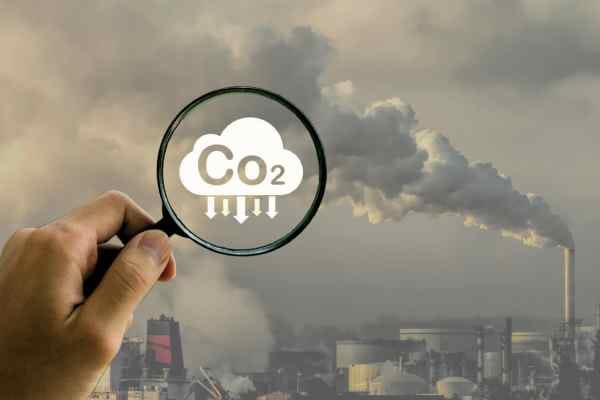Cracking low-cost carbon capture
This Sydney startup has plans to build thousands of machines to draw CO2 from the atmosphere at scale.

Fugu Carbon is one of a growing number of startups on a mission to remove and recycle atmospheric carbon cost effectively.
Like many carbon removal startups, Fugu is at an early stage in its journey, and as such has just raised A$1.7m in seed funding to help it preserve the earth’s atmosphere.
Hundreds of startups worldwide are now working to capture industrial emissions or directly remove carbon from the atmosphere. This effort is now considered essential (alongside emissions reduction) to limit global warming, according to the United Nations.
Carbon capture and removal, however, is known to be difficult and expensive to implement, making it hard to scale to the levels needed to make an impact.
With this in mind, Fugu says its solid direct air capture (S-DAC) systems are made from mass-manufactured parts and designed to be cost effective and quick to deploy.
The company's seed funding round was led by Investible, with participation from Australian investors Jelix and Electrifi Ventures, and Counteract, a London-based VC specialising in carbon removal.
"To hit our climate targets, we will now need to plant approximately three new Amazon rainforests by 2050, on top of decarbonising industry and society"
“We are thrilled to support Fugu on their journey to develop mass-manufacturable artificial lungs for the planet," Investible's investment manager Ben Lindsay said.
With an operational R&D facility in Sydney, Fugu says the capital will allow it to prepare for full-scale production of its direct air capture technologies by 2025. More specifically the funding will enable Fugu to scale its hardware, expand its team, and sell CO2 to its first Sydney customer.
Fugu's long-term goal is to produce 2000 shipping container-sized machines per annum from each manufacturing facility located in all the globe’s major carbon dioxide markets.
Ultimately, Fugu wants to extract a gigatonne – one billion metric tonnes – of carbon annually by 2032, selling the CO2 that's extracted to various industries including green fuels, food & beverage, and more.
Former SunCable founders Mac Thompson and Dr Luke Marshall created Fugu, inspired by their previous work on the world’s largest solar farm in NT (now owned by Mike Cannon-Brookes' Grok Ventures).
New tech needed
“This challenge is extremely difficult. To hit our climate targets, we will now need to plant approximately three new Amazon rainforests by 2050, on top of decarbonising industry and society – that will be incredibly hard to do in such a short timeframe,” Marshall said.
“We need new technologies that can accomplish this task at a fraction of the cost and difficulty. Furthermore, some industries will never be completely decarbonised so we must provide a green low-cost solution for them."
Marshall said many companies were trying to do this now with technology that is often difficult to implement in the real world due to cost, deployability or manufacturing limitations.
CO2 represents an enormous secondary market according to Thompson. "Thousands of companies around the world use it in its pure form to make chemicals, beverages and pharmaceuticals.
“And big global players like Airbus are investing heavily in turning it into sustainable fuels for jets and global shipping. Fugu is gearing up to be the key supplier of clean CO2 from the atmosphere for these offtakers.”
For heavy industry
Another Australian startup in the carbon space is KC8 Capture Technologies. This Melbourne-based company was founded in 2021 and focuses on hard-to-abate heavy industries such as steel, cement, and power.
KC8 uses a proprietary, sustainable non-toxic solvent to boost efficiency, lower costs and, according to the company, capture up to 95% of carbon emissions. And it also recently raised AUD$10 million from investors including Woodside Energy and Cemex Ventures to help it speed up its commercialisation plans.
Meanwhile, carbon capture startup 44.01 – which is backed by Sam Altman’s Apollo Projects and won an Earthshot Prize in 2022 – has also recently raised US$37 million in a Series A funding.
The startup, named after the molecular weight of carbon dioxide, removes captured carbon permanently by mineralising it in a rock called peridotite.
Peridotite mineralisation is a natural process, but 44.01 accelerates the process by pumping carbonated water into seams of peridotite deep underground.
Fugu’s solid direct air capture (S-DAC) machines will be made from mass-manufactured parts and will use solid sorbent filters that can be swapped out as more advanced tech becomes available. Fugu systems are designed to be cost effective, energy efficient and designed for rapid deployment. They will also leverage existing supply chains in a variety of industries including green fuels, and food & beverage. Fugu also aims to reduce the cost of carbon capture to enable green CO2 to be cost competitive with fossil-derived energy.





